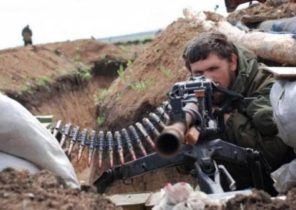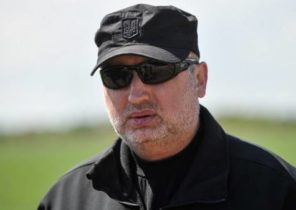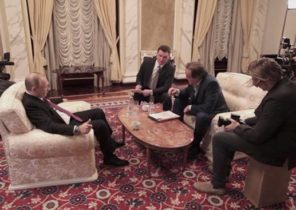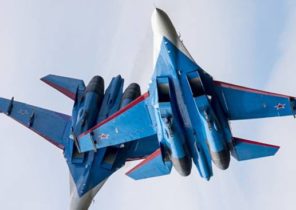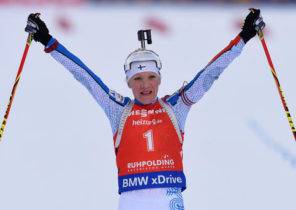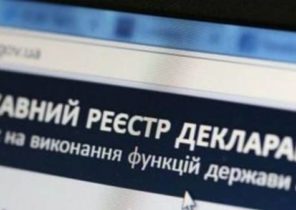
During the election campaign President-elect Donald trump questioned the Holy of holies transatlantic security — the principle that an attack on one is an attack on all. How will this be translated into real policy during his presidency, time will tell, but many NATO members in Eastern Europe are concerned — with good reason.
During this period of uncertainty in the transatlantic relationship in the UK remains nothing, except how to take a leadership position, if you do not the United States. This will require to rethink the military strategy of the United Kingdom, its military spending and its role in ensuring security in the region.
Watching the actions of Russia in Ukraine, in Georgia, in Syria, the militarization of the Arctic, the commentators often tell us that we are dealing with “Soviet Russia”, or that what we see in the actions of Moscow, is the behavior of the cold war. This is a complete misunderstanding of the threat posed by Russia to the West.
Today we are dealing with Imperial Russia, not with the new version of the Soviet Union. The President of Russia Vladimir Putin does not behave as Soviet Premier, but rather as a king. He pretty much is the leader of the Imperial type. Due to its constitutional juggling it with 1999 was either the President or the Prime Minister of Russia and can stay in one of these posts for the rest of his life.
So the West has a Russia of the XXI century with the ambition of the XIX century. Today, Moscow does not pursue the goal of spreading the ideology of “proletarians of all countries unite”, as it was during the cold war. Her goal is to use all the tools of Russian power — military, economic, energy, diplomatic and propaganda — to strengthen the influence of Russia and defend their interests. Targets are often our core values — the rule of law, equality, access to justice, the right to access to information, freedom of media, transparent elections and good governance. In Ukraine this is done through military force. In Central Asia this uses economic methods. And in the US this was done by intervening in the presidential election.
A cursory comparison of the current actions of Russia with its Imperial past, you can spend a lot of Parallels. For example, Putin is spending billions of dollars (money that could be better used for other purposes) for the creation of new bases and the militarization of the Arctic. In 1724, Peter the Great spent a sixth of Russian state funds on a scientific expedition to explore the Russian Arctic.
Or look at Russia’s actions in Syria. Today is not the first case when Russian troops fighting in the Levant. In 1772 the Russian troops under the leadership of Catherine the great attacked various Syrian cities in the coastal areas of the Levant and even for six months occupied Beirut.
Of all the Russian tsars Putin has more in common with Nicholas I, who ruled Russia from 1825 to 1855. The reign of Nicholas I was marked by the suppression of political dissent, the leadership of the decaying economy, the fight against Islamic fundamentalists in the North Caucasus, territorial expansion in the South Caucasus and the war in the Crimea.
Isn’t it something like?
In Europe there is no country so well knows how to deal with Imperial Russia, like the United Kingdom. The UK has literally centuries of experience with Imperial Russia. Perhaps, Lord Palmerston (Lord Palmerston), statesman of the Victorian era and former Prime Minister, best described in 1850-ies the behavior of Russia:
“The policy and practice of the Russian government has always boiled down to attacks so significant and far-reaching, so far as possible apathy and lack of firmness of other governments; but it always stopped and retreated when he met strong resistance, and then waited for the next available opportunity”.
There are things that never change. Russia, which in those days described the Palmerston, is exactly the same as the Russia that we see today.
The leadership Britain needed today more than ever in the modern history of Europe. To until (or if) the new administration trump will not take definite and final commitments to the transatlantic community, the security vacuum in Europe will have to fill in Britain.
As it happened with many of the autocracies that existed in history, today the loser is the people of Russia. Democratic freedom is retreating, corruption is rampant, and the future for most Russians is futile. The same shortcomings and mistakes that were characteristic of the Soviet Union a quarter-century ago, began to appear today in Putin’s Russia.
The fall in oil prices and economic sanctions over Ukraine only exacerbated the serious social problems of Russia. The population is not growing, widespread alcoholism, drug abuse, HIV infection and suicide.
Receive all the more widespread manifestations of ultra-nationalism that strengthens the Kremlin’s desire to expand spheres of influence. In addition to this so-called policy of support of compatriots with the result that Moscow has turned into samonazvanie defender of ethnic Russians — in whatever part of the world they may live.
Whether it is over the occupied Crimea and on the bottom of the Arctic ocean — Putin knows how to wave a flag. In the national spotlight, the average Russian sees the replacement of universal welfare — at least for now. But how long people will endure these hardships and frustration, we can only guess. And just as patience in the country will come to an end, to be sure, Putin will turn his attention abroad in search of new adventures as a distraction.
The mere fact that a new President of the United States does not mean that the history, geography and geopolitics of Europe changed. Trump will eventually realize (as I understand his two predecessors) that Russia under Putin can not be a partner of the West. The only question is, at what cost to transatlantic security is learned this lesson.
In the meantime, the UK will have to hunker down and, in fact, to play in European security the same role during the cold war the United States played. UK will be able to resist Imperial Russia. She’s done it before and can do it again — if there is political will.
Britain cannot and should not shirk this duty. It is possible that the fate of Europe will ultimately depend on it.
Luke Coffey is the Director of the Center for foreign policy of the Heritage Foundation and former special adviser to the Ministry of defence.

